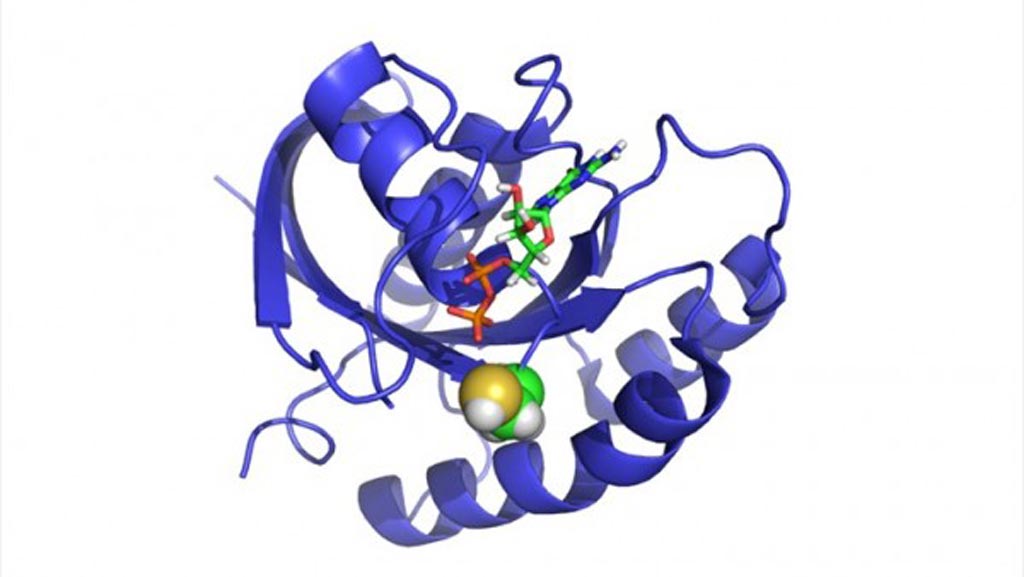New Cancer Treatments Aimed at Preventing Drug Resistance
By LabMedica International staff writers
Posted on 14 Mar 2018
Cancer researchers have proposed a method for preventing development of resistance to chemotherapy that targets a mutation that appears spontaneously in certain lung tumors.Posted on 14 Mar 2018
Activating mutations in RAS genes are associated with approximately 20% of all human cancers. While new targeted therapies have demonstrated preclinical promise in inhibiting the KRAS G12C variant, concerns exist regarding the effectiveness of such therapies in vivo given the possibilities of existing heterogeneity within the tumor or de novo mutation that leads to treatment resistance.

Image: The crystal Structure of K-Ras G12C (Photo courtesy of the Yale Cancer Center).
To address these concerns, investigators at Yale University (New Haven, CT, USA) performed deep sequencing of 27 KRAS G12-positive lung tumors to determine the prevalence of other oncogenic mutations within KRAS or within commonly mutated downstream genes that could confer resistance at the time of treatment. They also passaged patient-derived xenografts to assess the potential for novel KRAS mutation to arise during subsequent tumor evolution. Furthermore, they estimated the de novo mutation rate in KRAS position 12 and in genes downstream of KRAS.
The investigators reported in the February 16, 2018, online edition of the journal Oncogene that they had found no evidence of heterogeneity that would compromise KRAS G12C targeted therapy within sequenced lung tumors or passaged xenografts. They did find that mutations that confer resistance were even less likely to occur downstream of KRAS than to occur within KRAS.
Overall, the findings suggested that resistance to targeted therapy of KRAS G12C-positive tumors was unlikely to be present at the time of treatment and, among the de novo mutations likely to confer resistance were those in BRAF, a gene with targeted inhibitors presently available.
“Currently, we treat tumors with medication to target and inhibit the tumor as is, but not to prevent the future evolution of tumors into resistant forms,” said senior author Dr. Jeffrey Townsend, associate professor of ecology and evolutionary biology at Yale University. “We need to develop techniques and drugs that not only target the mutations that we know are there, but that also stop the evolution of the tumor. The treatment initially appears to successfully target a specific mutation in KRAS, but other mutations can appear down the road. By assessing the tumor's potential to reinvent itself after therapy, our findings inform us on how to combine therapies to intervene before cancer comes back in full force.”
Related Links:
Yale University













